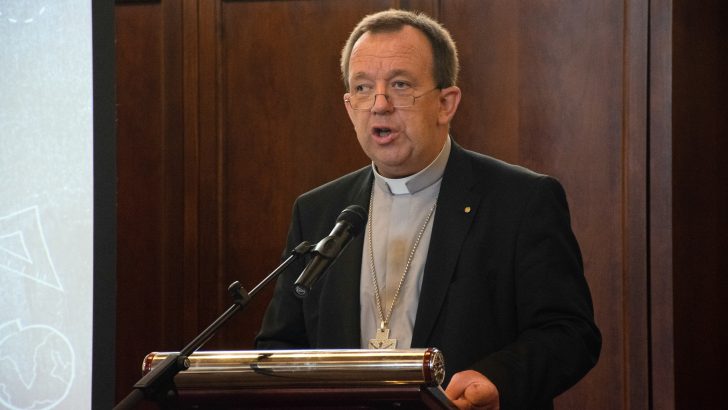There is a move in the western world to “decry” faith-based schools, despite Catholic schools being successful and inclusive, according to the Chair of the bishops’ Council for Education.
Speaking to The Irish Catholic Bishop Tom Deenihan of Meath warned against a growing ideology that faith must be excluded from public life.
He said: “Faith provides a certain hope, and in so doing, Faith also provides a degree of resilience and I think in western culture, not just in education, we have seen an ideology emerging that Faith must be excluded from public life, be it in education or any other sector.”
Regarding Catholic schools in particular, he insisted that “in western culture there is a move to decry Catholic or faith-based schools. But I think it’s important to bear in mind that our schools are oversubscribed, and those who we provide a service are very happy with that service by and large.
“I think we’ve become used to a narrative in terms of defining inclusion as being anti-denominational, or anti-faith, but inclusion is much broader in terms of ethnicity, ability, faith, socio-economic, nationality and so on and so forth. Our Catholic schools are inclusive on all those criteria,” Bishop Deenihan said.
In a homily to launch Catholic Schools Week delivered in the Cathedral of Christ the King in Mullingar, Co. Westmeath on Monday, Bishop Deenihan said that “Faith is too important for our Church and our students to be diluted by ideology and political correctness”.
The bishop said that nowadays there can be “confusion” about a Catholic school’s purpose, with some seeing it “indoctrination”.
“A Catholic school, and by extension, a Catholic education, is about people. Students come from different backgrounds, with different personalities and have different experiences but, like everyone else, are made in God’s image, Bishop Deenihan said, adding: “Our students need a vision and the reassurance of a God who loves them, they need a sense of a compassionate Church, they need a way of expressing their faith and they need hope for the future. They need a sense that we are born for more than what this life can offer. That is the importance of a faith-based education.”


 Chai Brady
Chai Brady Bishop Tom Deenihan
Bishop Tom Deenihan 